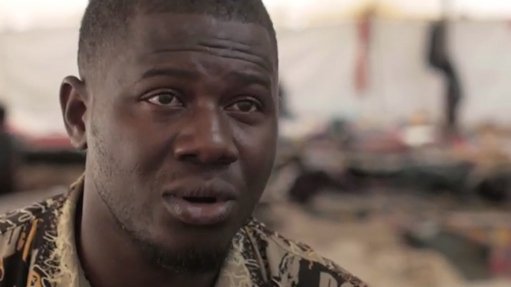
Amuri Djuma, a Congolese refugee furniture maker
Doctors Without Borders (MSF) is releasing a series of five video testimonies from refugees and migrants displaced by April’s wave of xenophobic violence in Durban, KwaZulu-Natal to displacement camps in Chatsworth and Isipingo set up by local authorities.
The organisation hopes that the videos will, in the build up to Africa Day (25 May), showcase the plight of those affected to both South Africans and the world at large, and to encourage people to share their stories as a starting point to inspire solidarity for survival and to stop xenophobia.
Each of these stories exposes the harsh reality of life as a kwere kwere in South Africa: persistent xenophobia that leads to healthcare exclusion, a denial of protection and unpredictable violence from friends and neighbours. Most testify to people continuously on the run: having first fled war and poverty, they now struggle to survive in a hostile South Africa. A number of them experienced similar violence in 2008.
Other videos will question the idea of nationality and emphasize a shared humanity and entitlement to be treated the same as anyone else.
Amuri Djuma, a Congolese refugee furniture maker, came to South Africa in 2004, leaving behind conflict in his home country, the Democratic Republic of Congo. He first worked as a barber, then branched into carpentry as a trade. Later, Djuma opened a furniture store and hairdressing business, which employed South Africans.
During a wave of xenophobic attacks in Durban, Djuma’s shop was looted and 80% of his stock was stolen. With very little left, Djuma still hopes to rebuild his life in Durban. “You can still achieve anything if you are alive, you need to focus on what is next,” he says.
Video commissioned by MSF
The videos were filmed and edited by Durban-based Scholars & Gentlemen